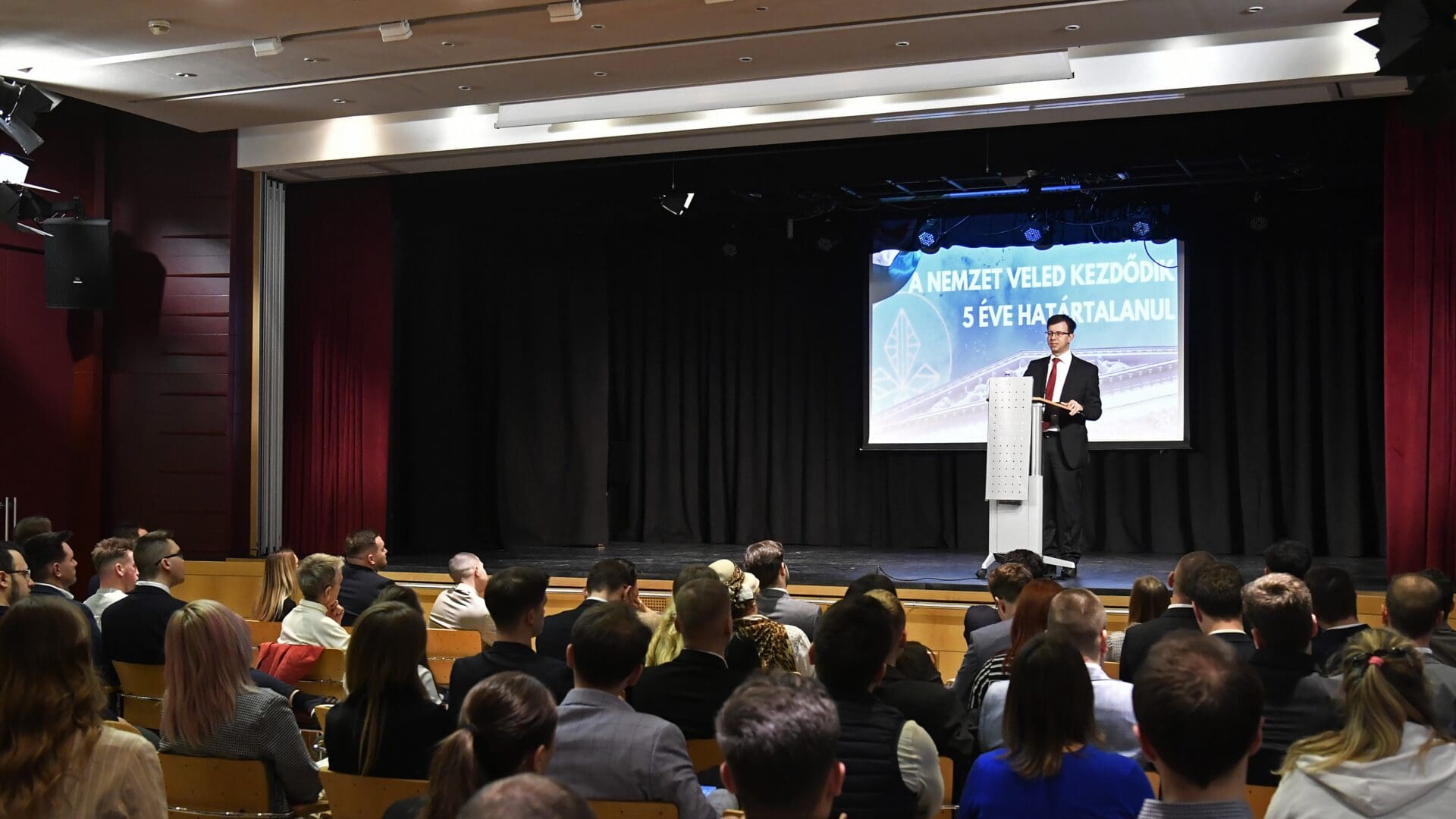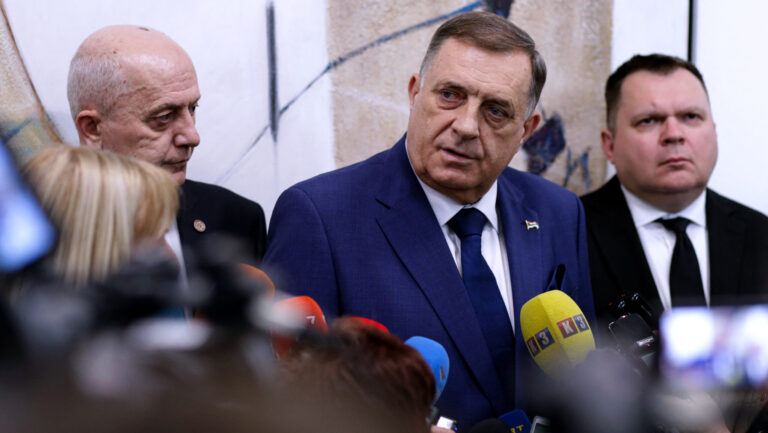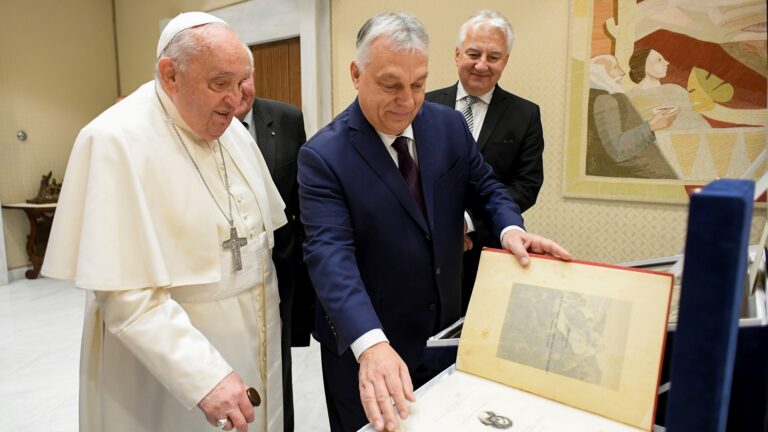‘The central priority of Hungary’s European Union Presidency will be strengthening the Union’s global competitiveness,’ Minister responsible for European Union Affairs János Bóka stated on Wednesday evening during the closing lecture of the Budapest conference organized by the Hungarian Youth Association.
János Bóka articulated that Hungary also aims to demonstrate what the European Union should and should not deal with what and how. He stated that instead of intolerance, a culture of dialogue and tolerance should be established, creating forms of cooperation that have real added value, make member states stronger together, and aim not to degrade but to strengthen member state capabilities.
The minister warned that Hungary will have to implement its EU presidency plans ‘in serious headwinds’. From the first day, there will be those who will label the Hungarian presidency unsuccessful, he noted.
In his presentation, János Bóka explained that concerning the enhancement of global competitiveness, Hungary intends to address the dysfunctions of the European internal market and industrial policy issues. It is necessary to review competition rules, international trade policy, as well as energy and raw material supply, he added. He noted that
demographic issues should also be scrutinized as they also affect competitiveness.
During the Hungarian presidency, the debate must continue on whether preserving or eliminating connectivity makes the EU stronger and more competitive, emphasized the minister. He added that Hungary’s position on this issue is clear. Bóka also pointed out that the cohesion policy contributes to improving competitiveness since the development of regions affects the competitiveness of the entire union. He mentioned that the midterm review of the cohesion policy is taking place during the Hungarian presidency, which is crucial for determining the cohesion policy of the next seven-year budget cycle.
The Hungarian presidency will also address migration issues, focusing on protecting the EU’s external borders, he highlighted. He added that they would like ‘certain innovative solutions’ to be put on the agenda. He mentioned the solution of how asylum applications could be processed in institutions established outside the EU borders. Regarding migration, the Hungarian government aims for closer European cooperation in combating organized crime and terrorism, the minister outlined. Bóka also drew attention to the emergence of a new type of anti-Semitism in member states in connection with migration. The Hungarian government wants to make substantive progress in Romania and Bulgaria’s accession to the Schengen area, he said, noting that this has been ‘unreasonably delayed for a long time.’ Regarding EU enlargement, he emphasized that the Hungarian government is committed to the accession of Western Balkan countries.
In connection with the European parliamentary elections in June, evaluating the past five years of the EU institutional system, he said: it has become clear that the European Union as an institution is not value-neutral but massively promotes and aggressively represents a political identity that is not characteristic of member states. Bóka stated that
the EU institutional system denies and neglects the Union’s Judeo-Christian cultural roots
while the gradual dismantling of member state powers is taking place.
In his assessment, he also pointed out that the EU’s goal of stopping the decline of the EU economy has not been achieved, and they have not even been able to slow down its pace. The transition to a green economy has also not been achieved, he remarked. The EU has not become a significant global political player, he said, citing the Union’s controversial positions regarding the Russo-Ukrainian war and events in the Middle East as examples.
He also opined that the EU’s intentions regarding securing stable food supply and the common agricultural policy are not clear. If the EU institutional system does not protect European agriculture, irreversible processes may be set in motion, he warned.
Related articles:
Sources: Hungarian Conservative/Hungarian Youth Association/MTI








